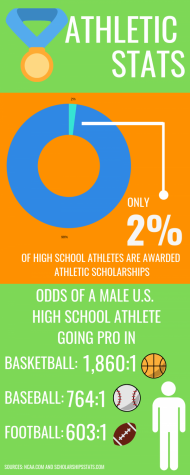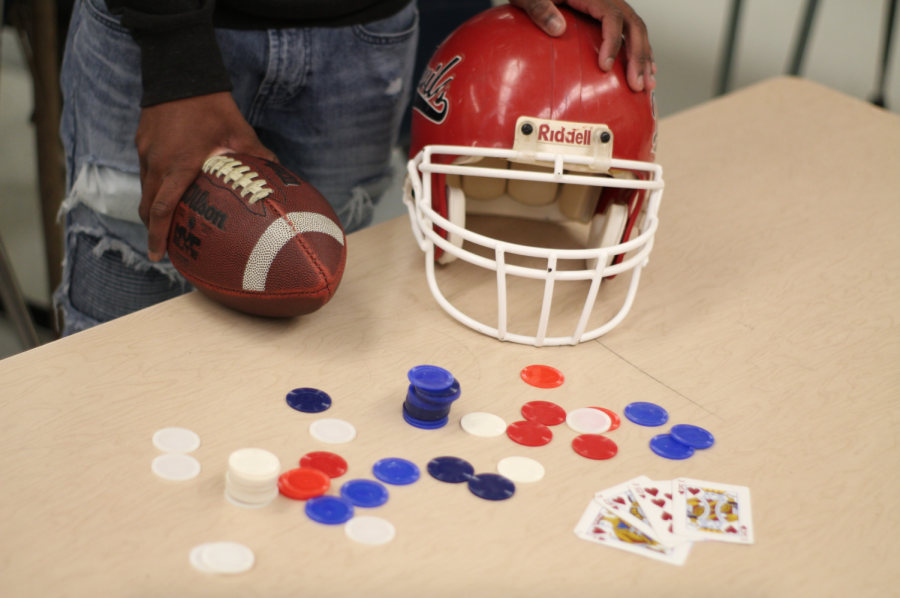Don’t bet on it
The problems of making sports your top priority
Photo by Joseph Asher
January 18, 2019
In high school, the chances of receiving an athletic scholarship for any given sport are slim. With other athletes from all over the country competing for the same opportunity, the standards are set high. Even then, those who do excel at their sport often make the risky decision of relying on their athletic ability to get them through college.
However, what happens when an injury occurs, one that interferes with one’s ability to play or knocks them down in their performance? This is a major factor to consider, especially in contact sports. A broken limb or a torn ACL could easily spell the end of your sports career.

Injuries can result in the athlete missing out on the chance to showcase their skills in front of college scouts. Or, if already committed, the injury could result in the student not playing on the team or the scholarship being suspended if the athlete is not academically stable.
Aside from just the risk of an injury, the probability of playing on a college team or even going pro is very low. Out of all the high school students who apply for athletic scholarships, only 2 percent receive one.
Another factor that many student athletes fail to recognize is the academic side of college. Keeping up with the required GPA and achieving the needed ACT or SAT scores escapes the minds of many. Colleges that require their athletes to be both athletically and academically stable are common.
“I’ve started looking at colleges and sending out emails for my running,” junior Owen Likins said. “I’ve always focused more on my academics than sports though because I want that backup plan in case I get injured. A lot of people lose their careers over an injury and don’t have strong academics to fall back on when that happens.”
While some have plans to fall back on if their sports careers don’t play out the way they hope, there are those who rely on their athletic abilities to carry them through life. These people can find themselves in a tough position if this doesn’t play out.
“I’m not too scared about getting injured,” senior Mabry Smith said. “If I do, our coach is very understanding and will give us our time to heal up and prepare for the next season. If I am unable to continue playing, I will really just focus more on my studies. I’m planning on going to the University of Central Arkansas for physical therapy school after I graduate from Ouachita Baptist University. I’m very dedicated to what I want to do, and my coach knows that. He is understanding of all of his athletes focusing on their studies over softball.”
It’s always the unexpected possibilities that people tend to forget about. These “what if’s” could really decide what one’s future may hold. Betting your whole career on a sport is not wise; having a backup plan and academic strengths is something important to have in order to be prepared for the curveballs of life.















